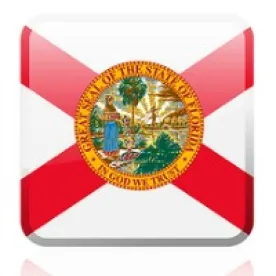On June 29, 2021, Florida Gov. Ron DeSantis signed CS/SB 1120, a bill on telephone solicitation effective July 1, 2021, that will dramatically impact businesses that engage in text message marketing and telemarketing to Florida residents. CS/SB 1120 requires all sales telephone calls and text messages to have the receiving consumer’s prior express written consent if the call will be made using an automated machine to select or dial the recipient’s telephone number. CS/SB 1120 creates a new private right of action providing consumers with the right to recover $500 per violation, plus the potential for enhanced damages and attorneys’ fees in favor of the consumer. CS/SB 1120 creates a rebuttable presumption that a sales call made to a Florida area code is made either to a Florida resident or to a person in Florida at the time of the call.
CS/SB 1120 amends Florida’s existing Section 501.059, to prohibit a person from making or “knowingly allow[ing] a telephonic sales call to be made if such call involves an automated system for the selection or dialing of telephone numbers or the playing of a recorded message when a connection is completed to a number called without the prior express written consent of the called party.” Several parts of the new private right of action are noteworthy.
Telephonic Sales Call
The new private right of action for the use of an automated system applies to a “telephonic sales call,” which is nevertheless very broad. “Telephonic sales call” is presently defined as “a telephone call, text message, or voicemail transmission to a consumer for the purpose of soliciting a sale of any consumer goods or services, soliciting an extension of credit for consumer goods or services, or obtaining information that will or may be used for the direct solicitation of a sale of consumer goods or services or an extension of credit for such purposes.”1 A “consumer” is “an actual or prospective purchaser, lessee, or recipient of consumer goods or services.”2 “[C]onsumer goods or services” are defined as “real property or tangible or intangible personal property that is normally used for personal, family, or household purposes, including, but not limited to, any such property intended to be attached to or installed in any real property without regard to whether it is so attached or installed, as well as cemetery lots and timeshare estates, and any services related to such property.”3
CS/SB 1120 eliminates the prior safe harbors that allowed an automated call system where the calls are made, or messages delivered, solely in response to calls initiated by the called party; if the telephone numbers have been screened to include persons on Florida’s “no sales solicitation calls” listing; or if the call concerns goods or services that have been previously ordered or purchased.4
Automated System
The most significant part of CS/SB 1120 is that it uses the existing undefined terminology: “automated system.” By its plain meaning, plaintiffs’ lawyers will argue that an “automated system” is broader than an “automatic telephone dialing system” (ATDS), which is the terminology used in the Telephone Consumer Protection Act (TCPA). Courts have debated for years the meaning of an ATDS, culminating in the U.S. Supreme Court’s April 1, 2021, decision in Facebook v. Duguid, which narrowed the interpretation of an ATDS.5 As stated, plaintiffs’ lawyers will argue that this definition under CS/SB 1120 is broader and applies to any system that “automat[es]…the selection or dialing of telephone numbers.” Importantly, the “automated system” would arguably appear to cover a system that manually selects numbers to be called but automates the dialing of those numbers.
Prior Express Written Consent
The Act mandates “[p]rior express written consent” for telephonic sales calls, including text messages, made using an automated system.6 “Prior express written consent” is a written agreement signed by the called party that clearly authorizes the person making or allowing the placement of a telephonic sales call by telephone call, text message, or voicemail transmission to deliver, or cause to be delivered, to the called party a telephonic sales call using an automated system for the selection or dialing of telephone numbers, the playing of a recorded message when a connection is completed to a number called, or the transmission of a prerecorded voicemail. The consent must include the telephone number to which the signatory authorizes a telephonic sales call to be delivered. It must also include a clear and conspicuous disclosure informing the called party that the called party authorizes the person making or allowing the placement of a telephonic sales call to deliver or cause to be delivered a telephonic sales call to the called party using an automated system for the selection or dialing of telephone numbers or the playing of a recorded message when a connection is completed to a number called; and the person is not required to directly or indirectly sign the written agreement or to agree to enter into such an agreement as a condition of purchasing any property, goods, or services.
For purposes of this requirement, “[s]ignature” includes an electronic or digital signature, to the extent that such form of signature is recognized as a valid signature under applicable federal law or state contract law. CS/SB 1120 also creates a “rebuttable presumption that a telephonic sales call made to any area code in [Florida] is made to a Florida resident or to a person in [Florida] at the time of the call.”
Persons Responsible
Significantly, the prohibition on the use of automated systems for telephonic sales calls applies not only to the person making the call, but also to any person who “knowingly allow[s] the telephonic sales call to be made.” At least one Florida court has previously construed the ban on automated calls to apply not only to intrastate calls but also to calls originating outside Florida where a Florida-based business knowingly allowed such out-of-state calls to be originated.7 Businesses and sellers that utilize third parties to conduct telemarketing and text marketing on their behalf should closely monitor compliance by their vendors with the Act, as well as the TCPA.
Called Party
The scope of “called party” in CS/SB 1120 is also unclear. It defines a “called party” as a “a person who is the regular user of the telephone number that receives a telephonic sales call.” “Called party” under the TCPA has been interpreted by some courts to mean the person subscribing to the called number at the time the call is made.8 The definition of “called party” opens the possibility that the regular user of the telephone number could be someone other than the person subscribing to the called number at the time the call is made. This raises difficulties in confirming that the person opting in with prior express written consent will be the same individual who is the “regular user of the telephone number.”
Other Requirements
In addition, the private right of action applies to a violation of other substantive provisions of Section 501.059. That includes prohibitions on: initiating calls, texts, or voicemail transmissions to persons who have previously communicated that they do not wish to receive such calls, texts or voicemails; initiating telephonic sales calls without transmitting the originating telephone number and if available, the name of the telephone solicitor; making telephonic sales calls while altering the voice of the caller; and making unsolicited telephone calls to residential, mobile, or paging devices if the telephone number appears on the do-not-call list.
Businesses that engage in telemarketing and text marketing to Florida residents and persons with a Florida area code should immediately ensure that their systems and the systems used by their vendors comply with CS/SB 1120 before July 1, 2021. The broad scope of CS/SB 1120 applies to any persons with an area code in Florida. In addition to complying with the new restrictions on the use of an automatic system for calls or texts and the TCPA, businesses should ensure that their systems and that of their vendors comply with the do-not-call and other provisions of CS/SB 1120.
1 § 501.059(1)(g), Fla. Stat.
2 § 501.059(1)(a), Fla. Stat.
3 § 501.059(1)(b), Fla. Stat.
4 § 501.059(8)(b), Fla. Stat.
5 Facebook v. Duguid, -- U.S. --, 141 S.Ct. 1163 (2021).
6 § 501.059(8)(a), Fla. Stat.
7 TSA Stores, Inc. v. Dep’t of Agric. & Consumer Servs., 957 So. 2d 25, 31 (Fla. 5th DCA 2007).
8 Osorio v. State Farm Bank, FSB, 746 F.3d 1242, 1252 (11th Cir. 2014); ACA Int’l v. F.C.C., 995 F.3d 687, 706 (D.C. Cir. 2018).




 />i
/>i

